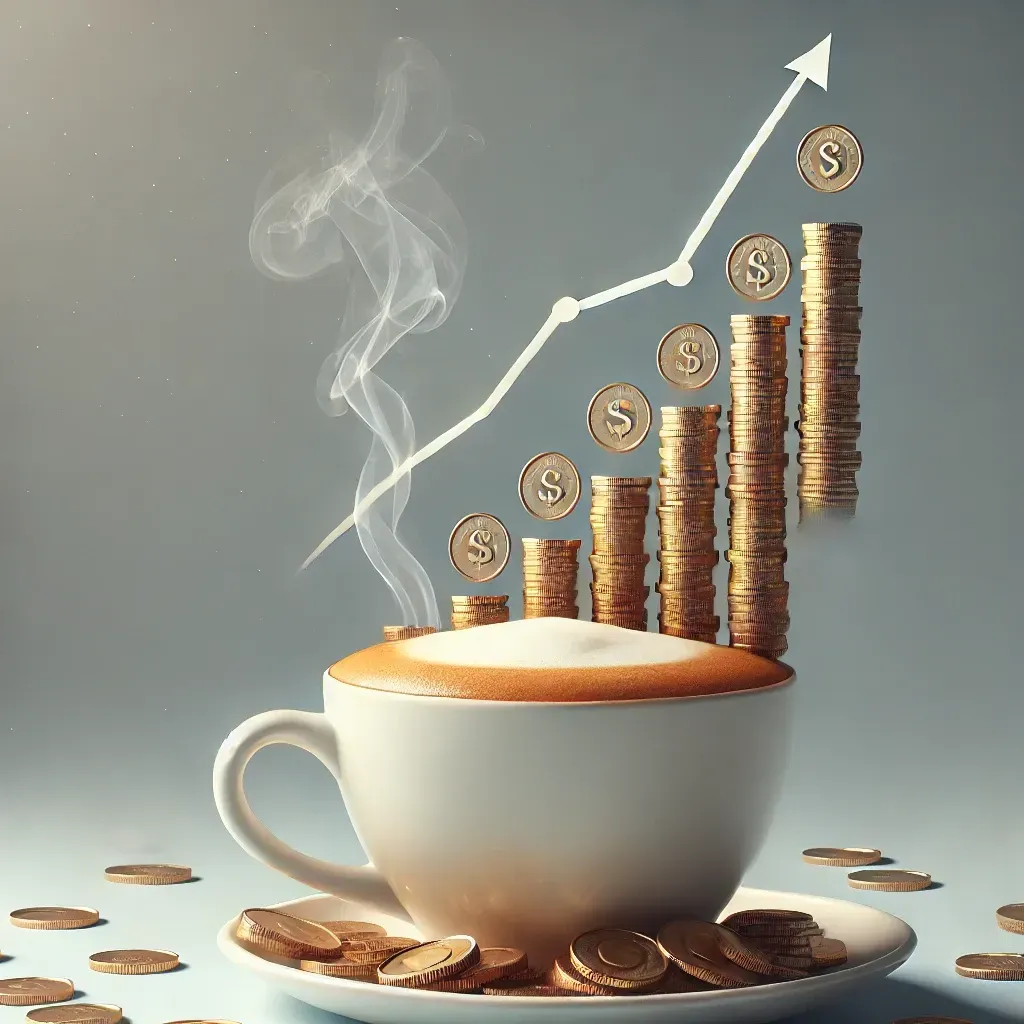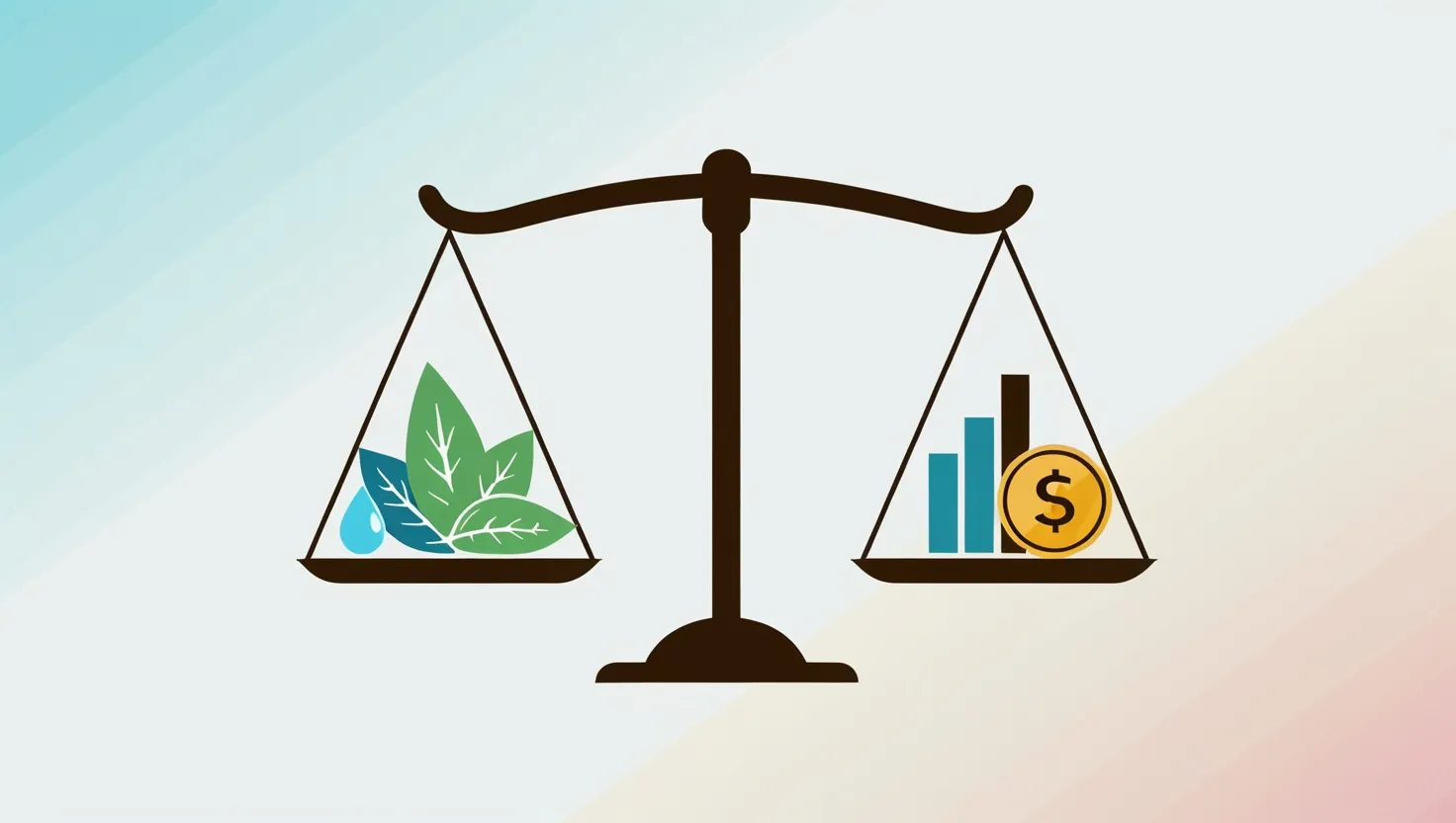The Latte Factor has become a popular concept in personal finance, highlighting how small, everyday expenses can significantly impact our long-term financial health. This idea, popularized by financial author David Bach, suggests that by cutting back on minor indulgences like daily lattes, we can redirect that money towards savings and investments, potentially accumulating substantial wealth over time.
At its core, the Latte Factor isn't really about coffee. It's a metaphor for any seemingly insignificant expense that, when added up over months and years, can amount to a considerable sum. This could be anything from a daily sandwich bought at lunch to a streaming service subscription you barely use.
Let's break down the math to illustrate this concept. Imagine you spend $5 on a latte every workday. That's $25 a week, roughly $100 a month, and about $1,200 a year. Over 10 years, that adds up to $12,000 - and that's without factoring in any potential investment returns. If you were to invest that money instead and earn a modest 7% annual return, you'd have over $17,000 after a decade.
This principle extends beyond just coffee. Think about other small expenses in your life. Maybe it's buying lunch out every day instead of packing one from home, or paying for a gym membership you rarely use. These might seem like minor costs in the moment, but they can add up to thousands of dollars over time.
The power of the Latte Factor lies in its ability to make us more aware of our spending habits. It encourages us to question whether these small purchases truly align with our long-term financial goals and values. By becoming more mindful of these expenses, we can make intentional choices about where our money goes.
However, it's important to note that the Latte Factor isn't about completely depriving yourself of life's little pleasures. If your daily latte brings you genuine joy and helps you start your day on a positive note, it might be worth the expense. The key is to be conscious of these choices and to cut back on the things that don't truly matter to you.
For example, Sarah, a marketing professional, realized she was spending over $200 a month on subscription services she rarely used. By canceling these subscriptions and redirecting that money into her retirement account, she was able to boost her savings significantly without feeling like she was sacrificing anything important.
Critics of the Latte Factor argue that it oversimplifies personal finance and places too much emphasis on minor expenses while ignoring larger financial issues like stagnant wages or rising housing costs. While these are valid concerns, the Latte Factor can still be a useful tool for many people to gain control over their spending and start building wealth.
The concept can be particularly powerful when applied to multiple areas of your budget simultaneously. For instance, by bringing lunch from home three days a week, canceling an unused streaming service, and switching to a cheaper cell phone plan, you might be able to free up $200 or more per month. That's $2,400 a year that could go towards paying off debt, building an emergency fund, or investing for the future.
One of the most compelling aspects of the Latte Factor is how it illustrates the power of compound interest. When you invest small amounts regularly over a long period, the growth can be astonishing. For example, if you invested $100 a month for 30 years and earned an average annual return of 8%, you'd end up with over $140,000. This demonstrates how even modest savings, when invested wisely, can lead to significant wealth accumulation over time.
The Latte Factor can also be a useful tool for young people just starting their financial journey. By adopting mindful spending habits early on, they can set themselves up for long-term financial success. A college student who cuts back on small expenses and starts investing even $50 a month could have a substantial nest egg by the time they're ready to buy a home or start a family.
It's worth noting that the Latte Factor isn't just about cutting expenses - it's also about redirecting that money towards your financial goals. Simply reducing your spending won't lead to wealth creation if you don't have a plan for the money you're saving. This is where the "pay yourself first" principle comes in. By automatically transferring your saved money into investments or savings accounts, you ensure that it's working for your future rather than being absorbed into other areas of your budget.
The concept can be applied to larger expenses as well. For instance, choosing a slightly less expensive car or opting for a more affordable vacation can free up substantial sums that can be invested for the future. The key is to always consider the long-term impact of your financial decisions, even when they seem relatively minor in the moment.
One of the challenges of implementing the Latte Factor is that it requires a shift in mindset. We're often conditioned to focus on immediate gratification rather than long-term benefits. Overcoming this hurdle requires developing new habits and finding ways to make saving and investing feel rewarding in the short term.
Some people find success by gamifying their savings efforts. For example, you might challenge yourself to have ten "no-spend" days each month, or compete with a friend to see who can save the most in a given period. Others find it helpful to visualize their long-term goals, whether that's a dream vacation, early retirement, or financial independence.
It's also important to remember that the Latte Factor isn't about deprivation or extreme frugality. The goal is to be intentional with your spending and to align it with your values and long-term objectives. If your daily latte is truly important to you, perhaps you can find other areas to cut back instead.
The digital age has brought new challenges and opportunities when it comes to managing small expenses. On one hand, subscription services and one-click purchasing make it easier than ever to accumulate small charges without realizing it. On the other hand, there are now numerous apps and tools available to help track spending, automate savings, and invest small amounts regularly.
Ultimately, the power of the Latte Factor lies in its ability to make us more conscious of our financial choices. By becoming aware of how small expenses add up over time, we can make more informed decisions about our spending and saving habits. Whether you choose to cut back on lattes or find other areas to economize, the key is to be intentional about your finances and to always keep your long-term goals in mind.
Remember, financial success isn't usually the result of one big decision, but rather the culmination of many small choices made consistently over time. By harnessing the power of the Latte Factor and being mindful of your everyday financial decisions, you can take control of your financial future and work towards achieving your long-term goals.






